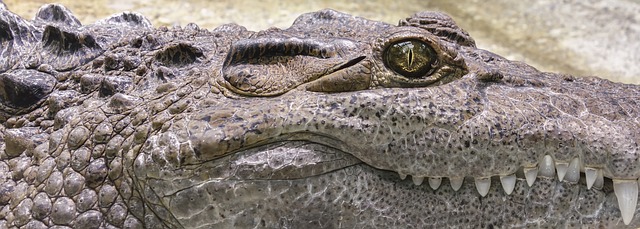Are Underbites Genetic? Can It Be Fixed Easily?
Are underbites genetic? This is a common question that many people have, especially those who have an underbite or have a family member with one. An underbite is a malocclusion of the teeth that occurs when the lower jaw is longer than the upper jaw. This can lead to difficulty in eating, speech, and other issues. In this article, we will explore the genetic component of underbites, as well as potential treatments and interventions. We will also discuss the risks and possible complications associated with this condition.
Exploring the Genetics of Underbites: What Causes an Underbite and Is It Hereditary?
An underbite is a dental condition in which the lower jaw protrudes beyond the upper jaw, resulting in the lower teeth being visible when the mouth is closed. This condition, also known as class III malocclusion, is a common form of malocclusion and can have serious implications on an individual’s oral health and overall well-being.
The exact cause of an underbite is often hard to determine, as it can vary from person to person. In some cases, underbites may be caused by the abnormal growth of the lower jaw, while in other cases, the condition can be attributed to the abnormal development of the upper jaw. In some cases, genetic factors may also play a role in the development of an underbite, as certain underlying genetic conditions may affect the growth of the jawbones.
It is important to note that underbites can also be caused by lifestyle factors, such as thumb-sucking, pacifier use, and bottle-feeding. Additionally, certain medications, such as corticosteroids, can also affect the growth of the jawbones and lead to an underbite.
When it comes to whether or not an underbite is hereditary, the answer is complicated. While there is evidence that certain genetic conditions, such as the cleft palate and cleft lip, can increase the risk of developing an underbite, there is no conclusive evidence that the condition is hereditary.
That being said, it is important to note that genetics may play a role in the development of an underbite, and it is possible that the condition may be inherited from one or both parents. If you have an underbite, it may be beneficial to speak with a genetic counselor to understand more about the potential genetic implications of the condition.
Overall, an underbite is a complex dental condition that can have a range of causes. While genetics may play a role in the development of an underbite, there is no conclusive evidence that the condition is hereditary. It is important to speak with a medical professional to understand the individual cause of your underbite and develop a personalized treatment plan.
Is an Underbite Inherited from Your Parents?
Is an underbite something that is inherited from your parents? It is a common question among many individuals who have or have family members with an underbite. While there is no definitive answer as to whether or not an underbite can be passed down genetically, there are certain factors that can contribute to the development of an underbite.
An underbite is a dental condition in which the lower jaw is larger than the upper jaw, resulting in the lower teeth protruding out in front of the upper teeth. It can be caused by the misalignment of the jaw or upper and lower teeth or even by genetic factors.
In some cases, an underbite can be inherited from one or both of the parents. In these cases, the condition is generally caused by a combination of genetic and environmental factors. It is believed that the misalignment of the jaw or teeth can be caused by a gene passed down from a parent. In some cases, the misalignment may be caused by an inherited disorder such as cleft palate or a syndrome.
In other cases, an underbite may be caused by environmental factors such as thumb sucking, tongue thrusting, or misaligned teeth. It is also possible for an underbite to develop due to habits such as biting the lower lip or grinding the teeth.
In order to determine if an underbite is inherited, it is important to visit a dentist or orthodontist for an evaluation. The dentist or orthodontist can examine the jaw and teeth and determine if the misalignment is caused by genetic or environmental factors. If it is determined to be genetic, the dentist or orthodontist may conduct genetic testing to see if the condition is inherited.
Ultimately, the answer to the question “Is an underbite inherited from your parents?” is that it is possible that an underbite can be inherited from one or both of the parents. However, it is important to note that an underbite can also be caused by environmental factors, and it is not always possible to determine the exact cause of an underbite. Therefore, it is important to visit a dentist or orthodontist if you are concerned about your or your child’s underbite to ensure proper diagnosis and treatment.
Can underbite be fixed easily?
Conclusion
In conclusion, underbites can be caused by both genetic and environmental factors. While there is some evidence to suggest that genetics may play a role in the development of an underbite, the exact gene or genes responsible have yet to be identified. Factors such as diet and lifestyle also play a role in the development of an underbite and may be the primary cause in some cases. Ultimately, further research is needed to fully understand the genetic basis of an underbite.






